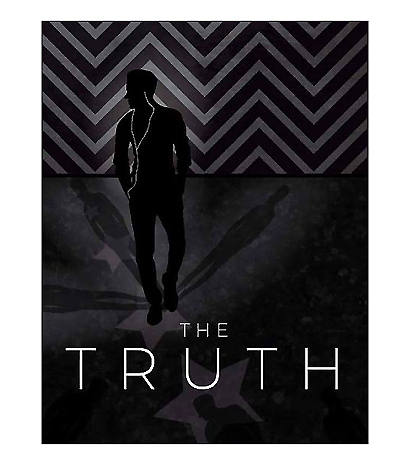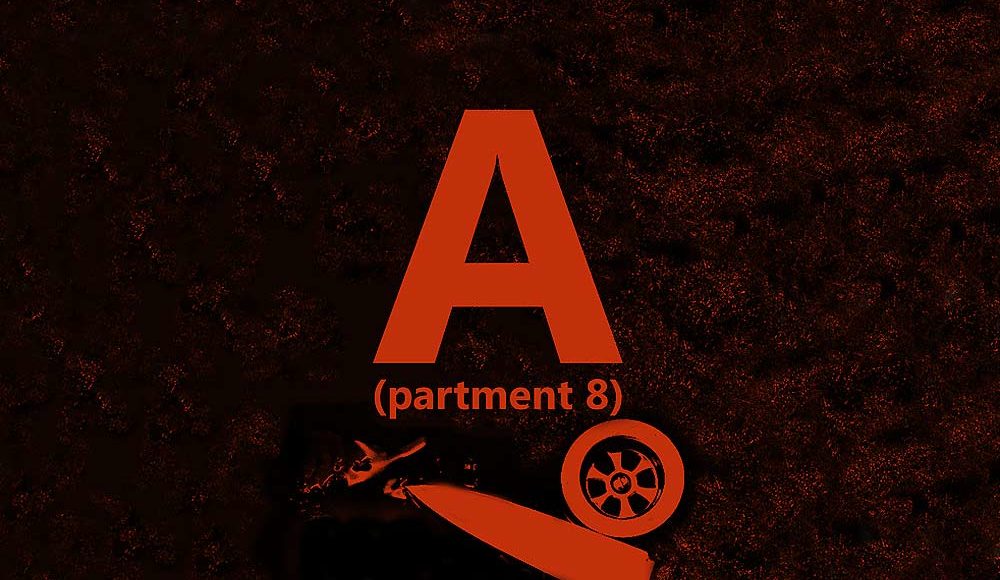Hollywood Fringe 2016 is bubbling over with choices. Here we have two shows that share common ground and perhaps even a common philosophy. And represent an element that needs more representation in this festival of ours….
(A)PARTMENT 8
One thing I appreciated about (A)partment 8 is that it was indeed the fringiest of the Fringe. Annie Lesser takes the concept of the solo show to a fuller plane by joining a single performer with a single audience member.
Here we have a performance that cannot be judged “good” or “bad,” but only if it worked or didn’t for the individual audience member who experiences (A)partment 8, and within the construct of the piece to have a participant run screaming from the site could be judged as having worked. And I can see the work being disturbing for some and perplexing for others.
This type of radical effort, this pushing of the boundaries, is what the concept of a “Fringe” festival was intended to offer as an outlet, to encourage and cultivate theatre like (A)partment 8, The Truth, Love The Body Positive and The Creeps.

Actor Keight Leighn
I cannot speak at length about this specific effort, because to speak of it would serve only to defuse the impact on those who undertake the experience. Also it is not a show that should engender discussion rather it is exceedingly intimate and personal.
Should you go?
Maybe.
If you’re Twin Peaks rather than Happy Days,
Eraserhead rather than Forest Gump,
Kafka rather than Barbara Pym,
Das Grauen rather than The Beach Boys, then you might be a candidate  for (A)partment 8. I will say that Lesser and actress Keight Leighn provided me with a fascinating event that I found thought provoking and unique. And what more can one ask from theatre.
for (A)partment 8. I will say that Lesser and actress Keight Leighn provided me with a fascinating event that I found thought provoking and unique. And what more can one ask from theatre.
For being what the Fringe should be more of: HONORABLE MENTION
Check out annielesser.com for more information.
THE TRUTH
 The Truth is a sincere failure.
The Truth is a sincere failure.
The audience meets outside the Hudson Theatre and is told by Dr. Herbert Griffin (Skip Pipo) that they shall be participants – test subjects – in a project undertaken by Shine Labs.
The audience then transverses a section of Hollywood’s back streets being passed between various individuals The Agent (Alexander Echols),
The Begger (Trish De Luca), The Dancer (Marlee Delia) and others.
As directed by Delia and scripted by Anna Mavromati the concept surpasses the execution.
The two major flaws of the piece are both linked to the concept itself.
It is unlikely that Delia or Mavromati have ever been involved in an experiment where human subjects were engaged, so I might recommend they watch Michael Almereyda’s fascinating film Experimenter (2015) about the social psychologist Stanley Milgram who tested the willingness of individuals to obey figures of authority.
At the end of his test sessions when subjects had the actual intent of the experiment revealed to them one could see the real purpose within the proxy scenario. It’s like the conclusion of a good mystery, where once the solution was known all the clues that were perhaps overlooked or misinterpreted fall into place and their connection to the story seem all too apparent.
That satisfaction is lacking from The Truth, and in fact I question whether playwright and director had any cohesive overriding notion for the total experience other than perhaps some vague sense of “the truth is out there somewhere.”
The piece felt like a device for connecting separate performances of the individual actors, in which case it works against the concept, as an “experiment” is a series of structured circumstances designed towards invoking a definite set of actions from its participants.
If there had been actual testing involved, (I’m not talking the Unit 731 kind, but towards sustaining a distinct statement on the act of observing or perception itself,) this might have helped the experience on a number of levels.
The other failure, and I am not being facetious here, was the absence of cheese.
A mouse runs a maze and at the end he either gets the cheese or he doesn’t, but cheese there is.
Not here.
 The audience are the rats in this instance and the maze is Hollywood, and that in and of itself is intriguing.
The audience are the rats in this instance and the maze is Hollywood, and that in and of itself is intriguing.
Also on the plus side the concept does succeed in a limited way, though one almost entirely out of the artists’ control.
On the night I participated, as the group worked down a dark side street, a large man bounced from his convertible bellowing, “The king is dead! Ali, Ali he’s gone!”
The group was divided whether this was “theatre” or not until a Google check revealed the passing of Muhammad Ali was not part of the show.
But this type of uncertainty was what the piece needed, though didn’t strive to foster.
 Still The Truth was an interesting failure which in my book is far better than a predictable success any day of the week. I would encourage the group to rethink their approach and test this one again.
Still The Truth was an interesting failure which in my book is far better than a predictable success any day of the week. I would encourage the group to rethink their approach and test this one again.
The call: BRONZE.
Click HERE for scheduling, info and tickets.




